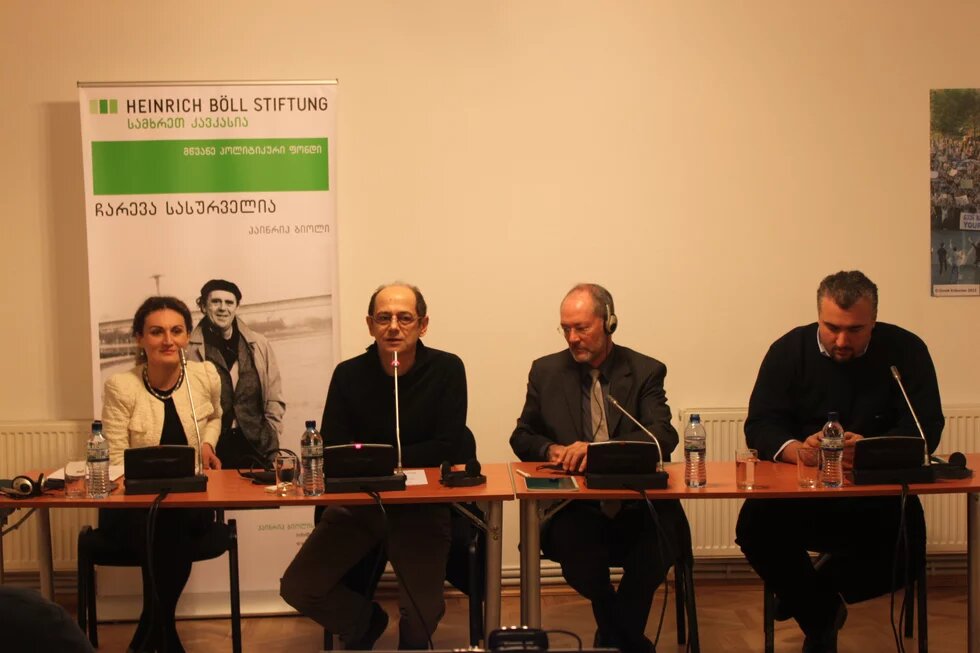
23 January, 2013
In 2013, the Heinrich Boell Foundation resumed its discussion cycle with the topic “The Geneva Process and Peaceful Transformation of Conflicts: A New Political Reality”. What is the new political reality, and what does peaceful transformation imply? What are the most important problems of the Geneva process? Why are the Geneva talks important for the Georgian party and other participants? The participants’ topics of discussion included long-term perspectives, new approaches, the views of the previous and present governments and the steps taken towards conflict resolution, parallels to the Cold War, gridlock, and looking for the ways out of the given reality.
His Excellency Guenther Baechler, the Ambassador of the Swiss Confederation to Georgia, considers that the current government, newly elected on the 1st of October, opens up new opportunities for Georgia to give the Geneva talks a favorable direction. He also hopes that more pragmatic approaches will be found. Guenther Baechler considers that the main problem in the process of negotiations is the lack of trust between the parties. He also speaks about seeking parallel channels as additional means for communication and compares the given situation with the period of a Cold War.
Ketevan Tsikhelashvili, the first Deputy State Minister for Reintegration Issues, touched upon the following issues: the 22nd round of talks; the new government’s rational, constructive and pragmatic approaches; the important message of members of the Georgian delegation; and the implication of the policy of small steps, along with the challenges that the Georgian party faced. He also described the line that the Georgian government follows and tactical steps to be taken to avoid damaging the country’s main interest and creating a threat to fundamental principles. Moreover, Mr. Tsikhelashvili talked about how they can envision changing the process so that it becomes results-oriented, what those modifications will entail, and what Georgians can offer Ossetians and Abkhazians.
Sergi Kapanadze, the director of Georgia’s Reforms Associates, the former deputy foreign minister, and one of the participants of the Geneva talks, discussed how the format of the Geneva talks was agreed upon between the parties in October 2008 and why it cannot be changed, and why there had been talks about changing it during the last two rounds. He also addressed why these talks were initiated, and what the Geneva talks mean for Georgia, Russia, Abkhazia and South Ossetia. Additionally, Mr. Kapanadze talked about why it is important that Russia is not represented as a mediator, while, on the other hand, there are international mediators, in the first place the European Union. Finally, he explored the scenarios if there were to be a threat that Russia, Tskhinvali and Sukhumi would attempt to gradually reduce the talks and maintain them artificially, and if today’s government of Georgia would be ready to exert diplomatic pressure over Russia, as the previous government repeatedly did, if such a need were to arise.